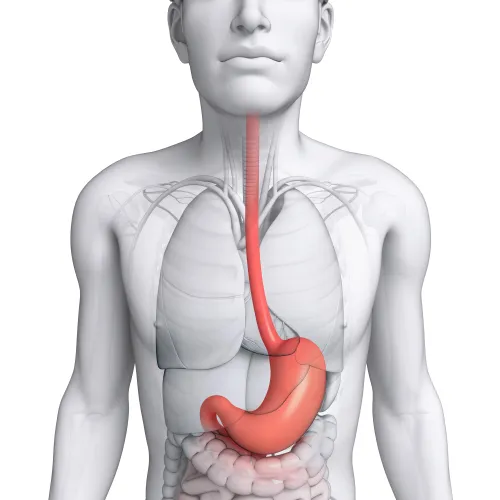Can You Answer These Diagnosis Coding Questions?
From generalized pain to Barrett’s Esophagus, see if you can nail down these Dx codes. As GI coders prepare for yet another crop of new ICD-10 codes, it’s a good time to brush up on your knowledge of the existing diagnosis code set. Check out the following three questions and see how you’d answer before checking which is the right ICD-10 code for each scenario. Barrett’s Esophagus Question 1: A patient previously diagnosed with Barrett’s esophagus (without dysplastic changes) comes to your gastroenterologist’s office for a surveillance visit. Your gastroenterologist evaluates the patient’s symptoms and proceeds to perform an endoscopy with biopsy of the esophagus. The biopsied specimen is sent to the laboratory to check for dysplasia. The laboratory results return confirming the presence of low grade dysplastic changes. How should you report this? Solution: You’ll report this condition with K22.7 (Barrett’s Esophagus). However, you need to look deeper into the patient notes prior to reporting the diagnosis of Barrett’s esophagus. This is so because ICD-10 codes are specific in reporting Barrett’s esophagus based on the presence or absence of dysplastic changes. So K22.7 expands into a fourth digit classification based on these factors: In addition, K22.71 expands out to a further fifth digit classification based on the grade of dysplastic changes. So if dysplasia is present, you will have to further look through the documentation to see if there is any mention about the degree of dysplasia that is present to correctly report the diagnosis of Barrett’s esophagus. Therefore, in this situation, the appropriate code is K22.710. Pain and Tenderness Question 2: A 25-year-old man presents with abdominal pain. The physician notes complaints of generalized abdominal pain for one day, with flatus, no vomiting or diarrhea. Last bowel movement, the same morning, was of hard consistency. Abdomen examination reveals decreased bowel sounds, generalized tenderness to deep palpitation in abdomen. The provider finds there is no localized abdominal tenderness or any palpable masses during the rectal exam. Solution: Although the patient has genuine complaints, the physician did not document a definitive diagnosis code, providing you with two coding options that describe the symptoms. You may code R10.84 (Generalized abdominal pain) to denote generalized abdominal pain, and to depict generalized abdominal tenderness, you may report R10.817 (Generalized abdominal tenderness). IBS With Diarrhea Question 3: Your physician examines a 52-year-old male new patient with complaints of pain in the abdominal area and flatulence. He also complains of some degree of diarrhea, cramping, and distension. He says that he has been having these kinds of symptoms for some time now and they have been aggravating on and off. He also says that he has episodic events of diarrhea followed by many days of constipation. He says that he has been to many other doctors before, but there has been no permanent remedy to his problems. Your clinician performs a thorough evaluation of the patient. He orders a complete blood count and stool tests to check for blood in the stools. He also asks for a CT scan of the abdominal area to rule out other problems. Based on history, signs and symptoms, and negative findings from lab tests and imaging studies, your clinician arrives at a diagnosis of IBS. Solution: When you are reporting a diagnosis of IBS, you will have to check further into the patient’s chart, as you have more options than a simple crossover one-to-one code for this condition. You begin your choice with the ICD-10 code, K58.- (Irritable bowel syndrome). However, K58 further expands into two different codes depending on the presence or absence of diarrhea: In this case, since the patient is experiencing diarrhea, you should report K58.0.




